Towards the end of the lacrosse season last year, a parent for a youth goalie I coached a while back texted me. He was out for the playoffs after suffering a concussion from a shot to the head.
I talked PLL and NLL goalie Dillon Ward who missed several games in 2015 after suffering a concussion from a shot to the dome.
I chatted with former MLL goalie Austin Geisler who at several different points in his career suffered concussions that set back his progress.
While I was never officially diagnosed with a concussion I remember two specific game incidents where – knowing what I know now about concussions – the symptoms were obvious.
Talk to almost any goalie who has spent enough time in this game and you see one recurring theme – everyone has suffered a concussion.
When will the madness end?
Concussions are a hot topic in sports these days. And with the research being done in the NFL, the whole world is being made aware of the issues with head injuries from sports.
I think because lacrosse carries less national popularity the sport is less monitored and less accountable when it comes to concussions.
Dillon Ward missing a few games due to a concussion doesn’t get the same air time as Tom Brady missing a few games due to a concussion.
So what’s the sport to do about concussions? This post is my rant against concussions and a few proposed solutions.
Lacrosse Goalies and Concussions
First, a fact – lacrosse goalies wear the exact same helmets as field players and yet we’re 99% more likely to get tagged in the dome than our field counterparts.
In my post 6 Things I Wish Existed For Every Lacrosse Goalie, a lacrosse goalie helmet is high on the list.
When you know you’re going to be hit in the helmet with a 90-100mph rubber ball, your gear should protect you. There’s no way a goalie should get a concussion from a shot to the helmet.
If you wanna see (and hear) exactly what a concussion sounds like for a lacrosse goalie, here you go:
Helmet manufacturers will tell you that no lacrosse helmet can fully prevent concussions. While that’s probably true, I will argue that the helmet you choose to wear does impact your probability of being concussed. As you’ll in the next section, science actually proved helmets protect differently.
The new helmet designs of today’s equipment manufacturers are lighter, sleeker, and cooler looking but many athletic trainers have postulated that these new helmets may increase the risk of cerebral concussions in men’s lacrosse players.
The sport is really in need of a “lacrosse goalie helmet” that’s beefed up specifically to prevent concussions on shots to the dome.
Why don’t they create one? I think the answer is obvious. The market is too small.
I have a lacrosse goalie site that gets a fraction of the visits of the general lacrosse blogs like Inside Lacrosse and LaxAllStars which probably get hundreds of thousands of monthly views.
Until then, lacrosse goalies are left using the same helmets as field players.
Lacrosse goalies (and players in general) need to start valuing protection over coolness.
Lacrosse Helmet Study
A long time ago in 2002, Shane V. Caswell and Richard G. Deivert set out to test the protection level of different helmets of that era.
Their study – Lacrosse Helmet Designs and the Effects of Impact Forces – compared four helmets in a controlled drop study.

Helmets were raised to 152 cm and released onto an anvil padded with a 1.27-cm rubber modular elastomer programmer. Ten treatments to a front (FD) and right rear boss drop site (RD) were performed. An accelerometer within the head form measured impact force.
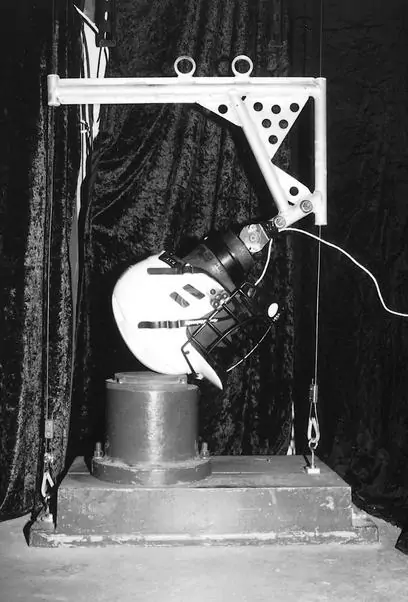
The study found that the different helmets dissipate levels of force differently. With one helmet doing a much better job of protecting than the others.
While each manufacturer has since upgraded their helmet, I think the results of the study are still true – some helmets do a better job against concussion prevention than others.
I couldn’t find a similar study with the current modern day helmets but that would incredibly interesting to see because us lacrosse goalies need to know which helmets protect our domes the best.
Lacrosse needs to do a better job with helmet safety. Period.
Lacrosse Goalie Concussion Prevention
To reduce your chances of getting a concussion, besides a good fitting helmet, there are a few other options that goalies can try.
Lexi Shield
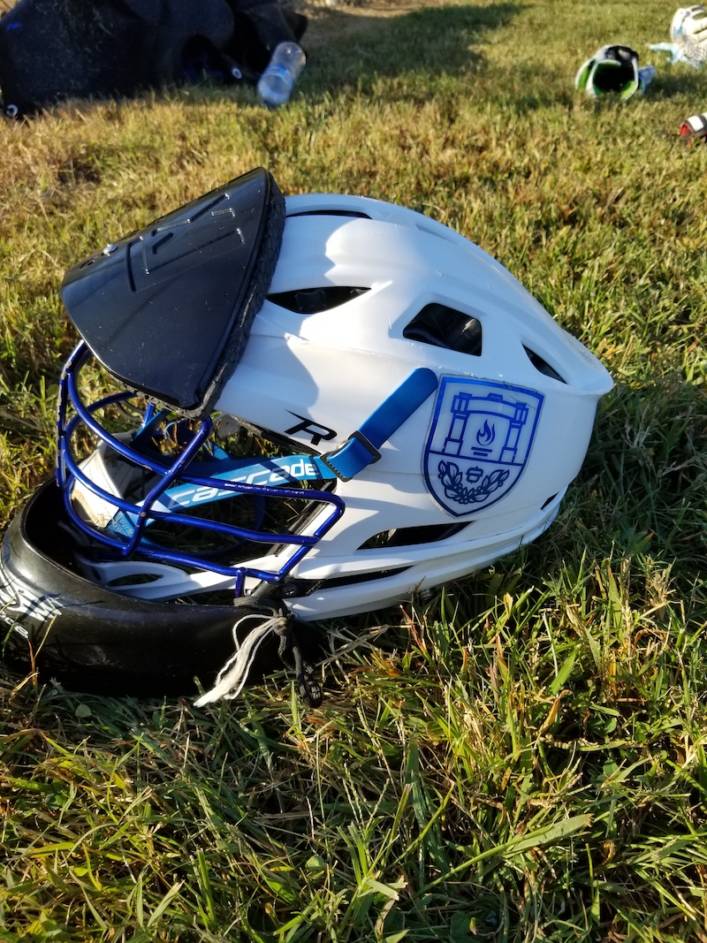
I’ve discussed the Lexi Shield pretty thoroughly on the blog including this full Lexi Shield review.
The Lexi Shield is an aftermarket device that attaches to the bridge of the helmet and helps reduce the impact of shots to that area.
By reducing force the head and helmet receives on shots to the forehead, the Lexi Shield is scientifically proven to reduce concussions.
Note – I have a few extra Lexi Shields (thanks to the amazing team at Lexi Shield) and I’m giving them away free for those who sign up for the Lax Goalie Rat camp. While supplies last! If you signup with this link, shoot me an email ([email protected]) and I’ll get you taken care of.
Guardian Cap
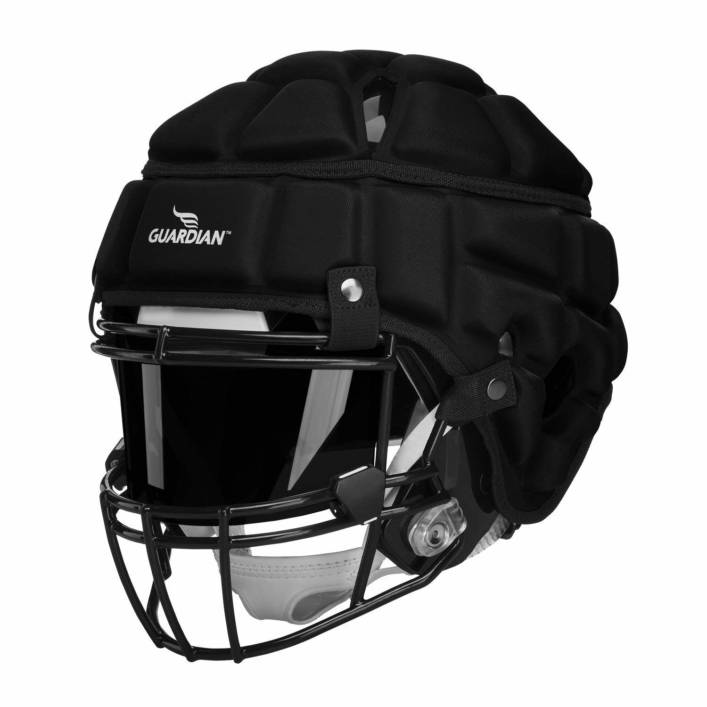
Same idea as the Lexi Shield, the Guardian Cap is an aftermarket device attached to the helmet to help reduce impact.
The Guardian Cap is more conspicuous as it covers the full helmet. I don’t think that’s necessary for lax goalies as I can’t ever remember getting hit in the side of the head by a shot.
Both the Lexi Shield and the Guardian Cap are not approved by the high school or NCAA rules so these are practice wear items only. You’ll have to take them off for games.
Buy a Guardian Cap on Amazon.
Custom-made Mouth Guard
This study showed that custom-made mouth guards helped reduce concussions.
High school football players wearing store-bought, over-the-counter mouthguards were more than twice as likely to suffer mild traumatic brain injuries/concussions than those wearing custom-made, properly fitted mouthguards, reported the study.
Studies have theorized that mouthguards can reduce concussion risk because they help absorb shock, stabilize the head and neck, and limit movement caused by direct hits to the head and jaw.
So when it’s time to get your goalie’s mouth guard, visit the dentist, not Dick’s Sporting Goods.
The custom-made mouth guard also will have the added benefit of allowing the goalie to talk and communicate better with the defense.
Tennis Balls or Soft Lacrosse Balls
If you’re working with a goalie in a drill that involves a lot of shots in tight, consider using tennis balls or soft lacrosse balls.
A myth regarding concussions is that the greater the impact force the more likely a concussion. The data actually suggests that concussive injury can occur with different levels of impact.
So with the softer balls regardless of shot speed, the impact will be lessened.
These balls also don’t sting as much if a shot is taken to the legs or arms which can result in a contusion that zaps a goalie of his/her will to practice if its a normal rubber lacrosse ball.
The tennis balls and softer lacrosse are way lighter than normal pills so it will mess with shooters but if the drills you’re working are for the goalies, that doesn’t matter.
Get soft lacrosse balls here on Amazon.
Swax Lax balls also accomplish the same idea.
Q-Collar
One of the more recent arrivals on the scene is the Q-Collar.
It’s a device that is worn around the neck and puts a little pressure on the jugular veins in your neck, thereby increasing blood volume.
Because the brain floats inside the skull, it moves – sometimes with great force – when the head is exposed to an impact like a crank shot.
By applying light pressure to the sides of the neck, the Q-Collar increases blood volume in the brain’s venous structures, reducing the harmful internal movement that causes brain injury.
Buy your goalie a Q-Collar here
Several lacrosse goalies like Lax Goalie Rat sponsored athlete Emily Sterling have used the Q-collar to help aid in the protection of the brain from crank shots to the dome.
Conclusion
Characterized by an impairment of the brain’s normal function and caused by violent shaking or jarring of the brain, concussions may cause alterations in cognitive function, vision, eye movement, facial movement, or speech.
Anyone who has gone through a concussion knows the deal. You’re not yourself for at least a few days while you’re recovering.
Anytime a goalie takes a loud shot to the head, he or she must be checked for a concussion. Continued to play goalie while concussed only has additional risks.
Given that we know lacrosse goalies will take 90-100mph shots to the head, it seems silly that we use the same exact helmets as field players.
Luckily there is additional aftermarket protection that can help goalies reduce concussions in practice.
Until next time! Coach Damon
Anyone out there suffered a concussion? Would love to hear about it in the comments.
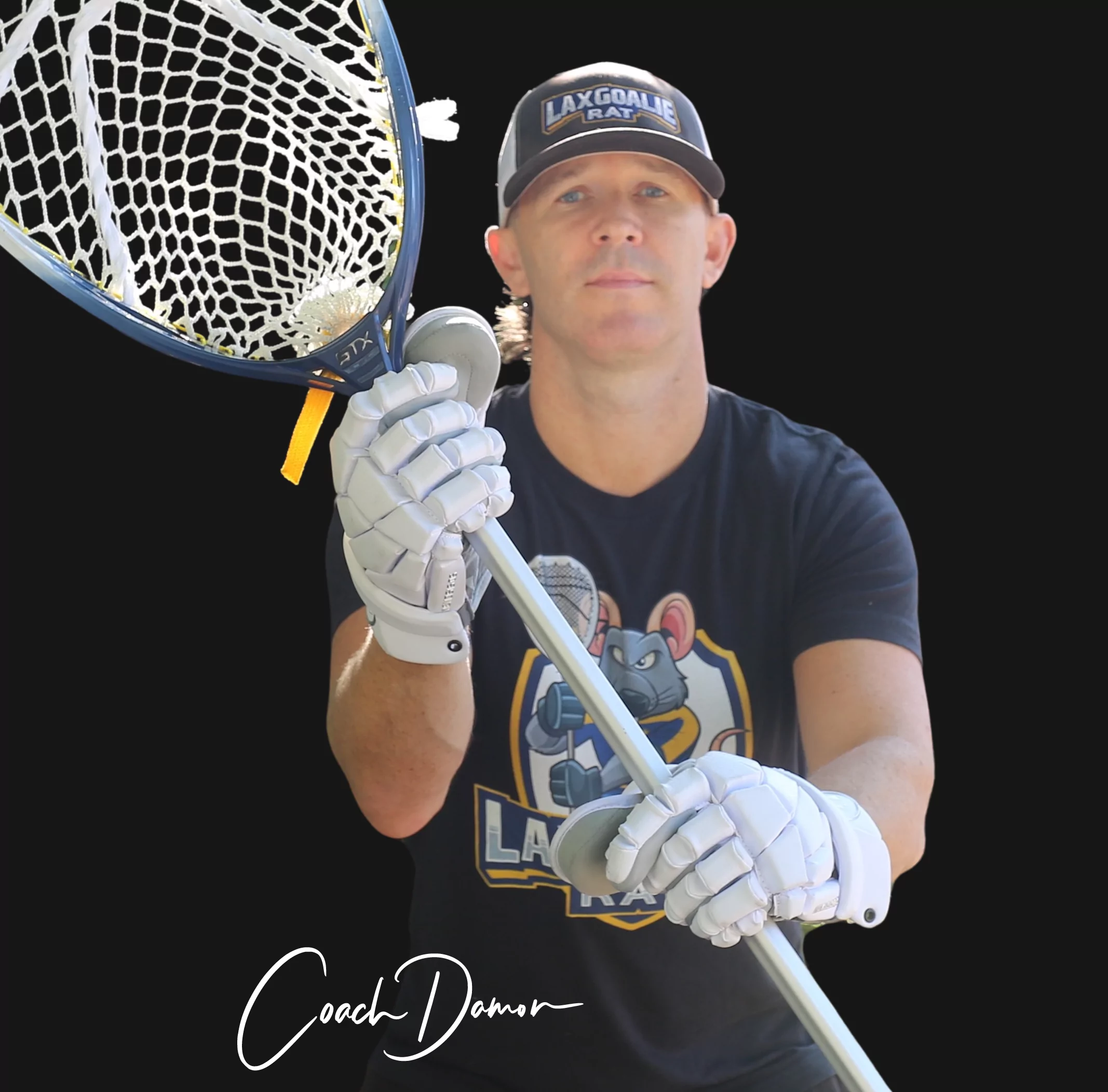







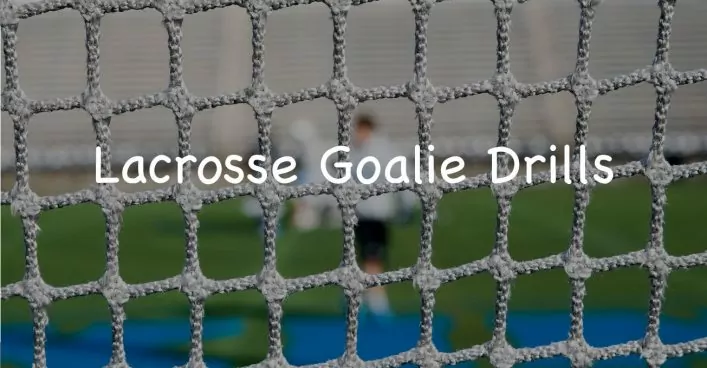 14 Amazing Lacrosse Goalie DrillsAug. 1, 2024
14 Amazing Lacrosse Goalie DrillsAug. 1, 2024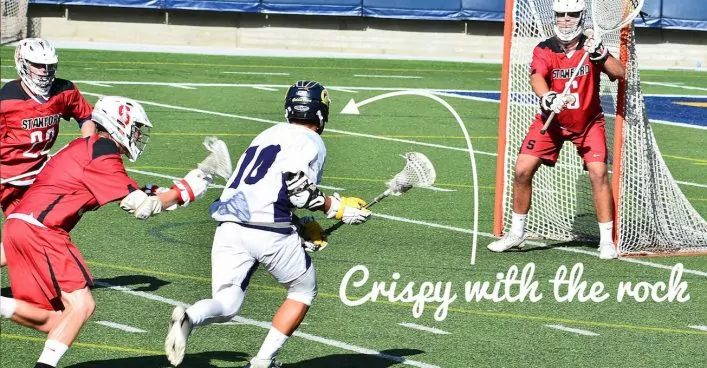 Quick Guide To Lacrosse Slang TermsApril 14, 2025
Quick Guide To Lacrosse Slang TermsApril 14, 2025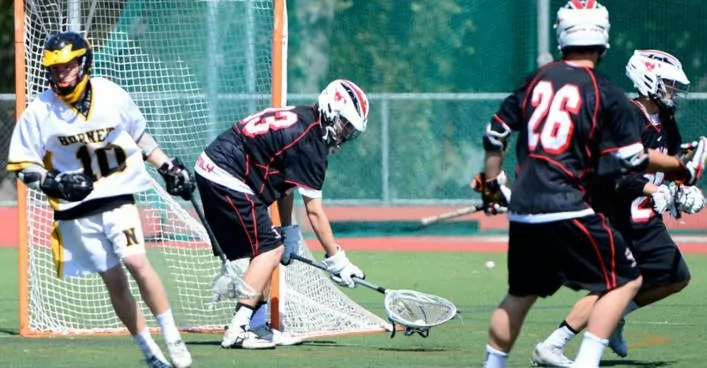 Lacrosse Goalies Rules To KnowJune 28, 2022
Lacrosse Goalies Rules To KnowJune 28, 2022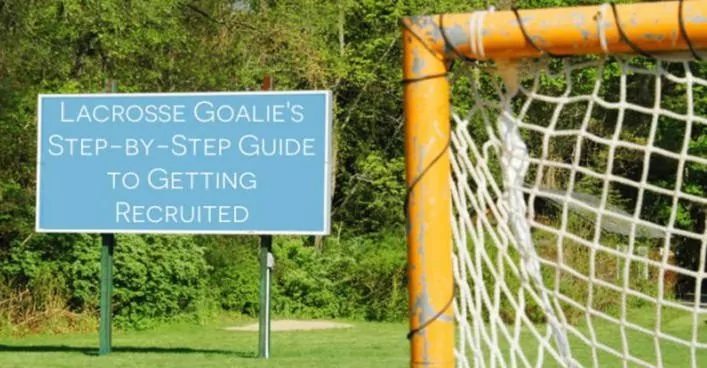 Lacrosse Goalie Step-by-Step Guide to Getting RecruitedFebruary 6, 2022
Lacrosse Goalie Step-by-Step Guide to Getting RecruitedFebruary 6, 2022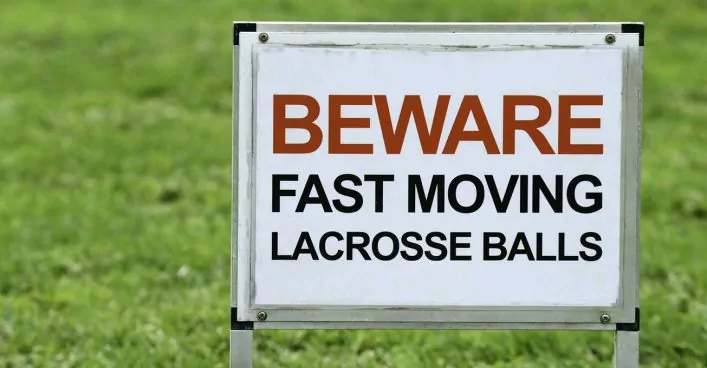 18 Lacrosse Goalie Drills to Improve Your GameApril 24, 2025
18 Lacrosse Goalie Drills to Improve Your GameApril 24, 2025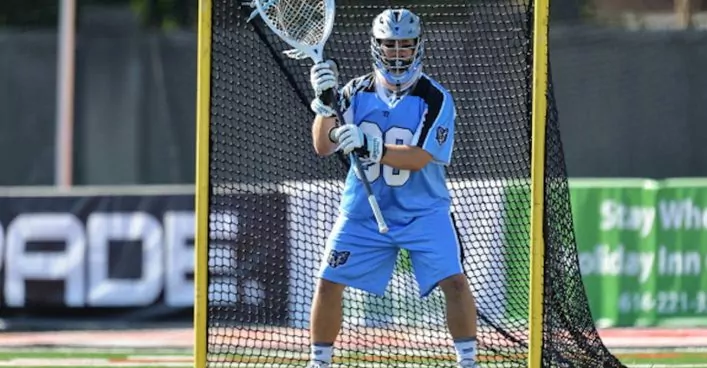 7 Elements of a Great Lacrosse Goalie StanceAug. 1, 2020
7 Elements of a Great Lacrosse Goalie StanceAug. 1, 2020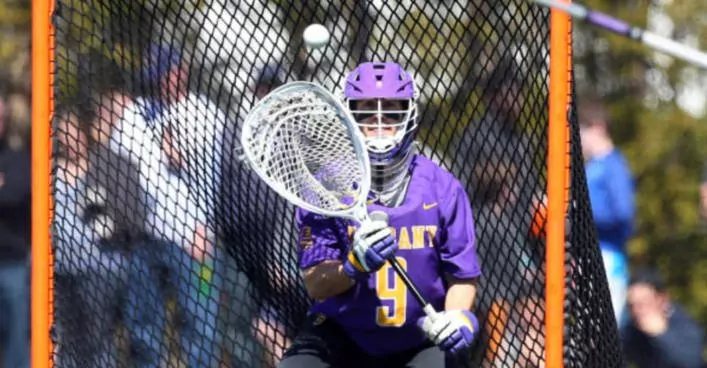 12 Lacrosse Goalie Tips To Take Your Game to the Next LevelSeptember 10, 2024
12 Lacrosse Goalie Tips To Take Your Game to the Next LevelSeptember 10, 2024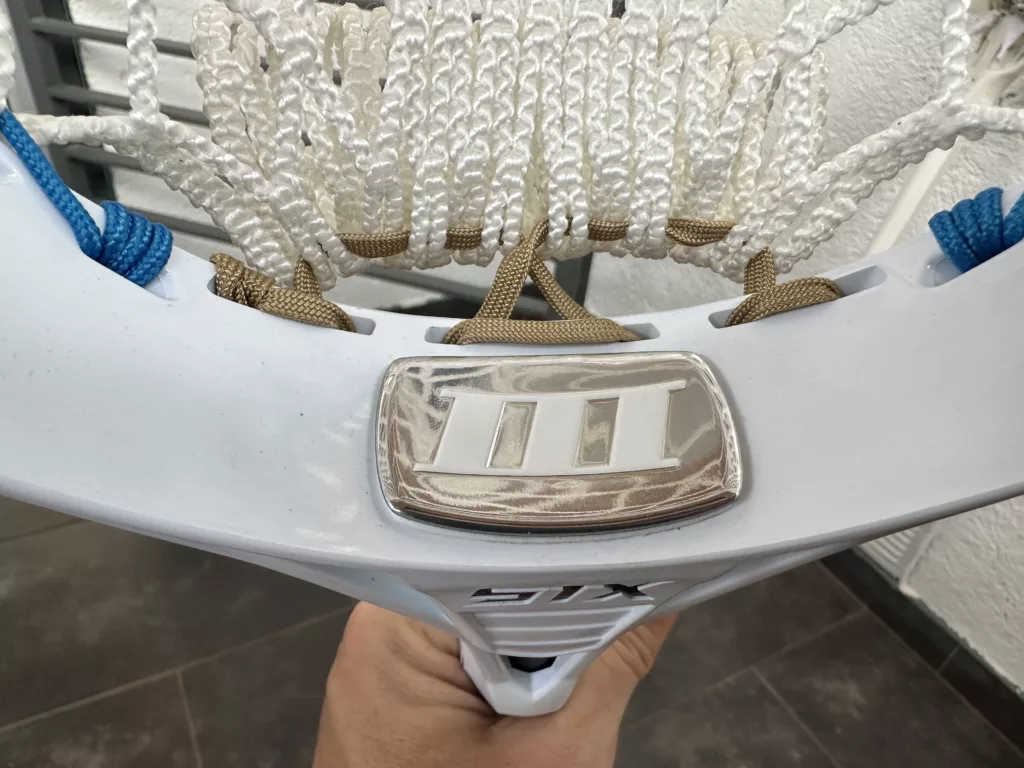 STX Eclipse 3 Goalie Head ReviewApril 24, 2025
STX Eclipse 3 Goalie Head ReviewApril 24, 2025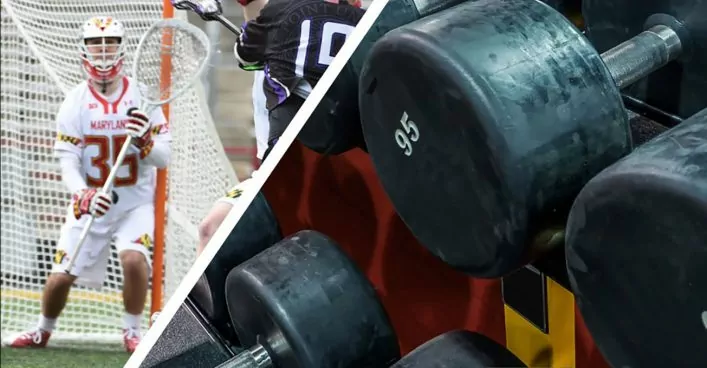 Lacrosse Goalie WorkoutAug. 12, 2019
Lacrosse Goalie WorkoutAug. 12, 2019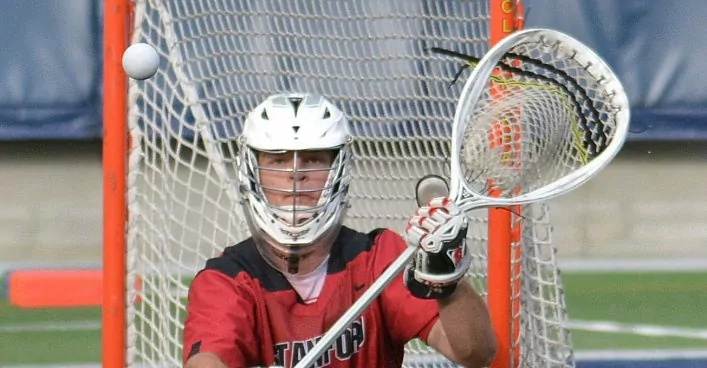 The Basics of Making a SaveJune 29, 2021
The Basics of Making a SaveJune 29, 2021

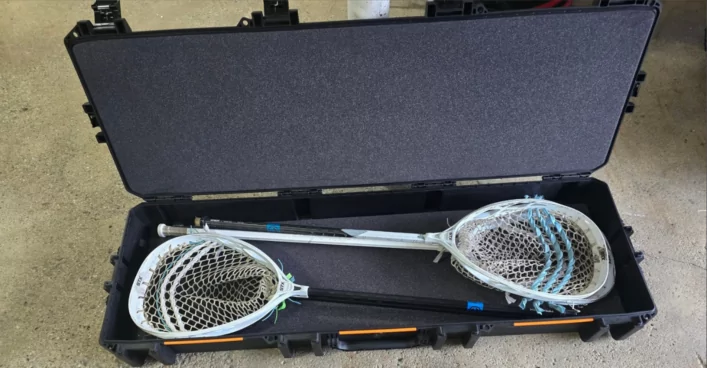
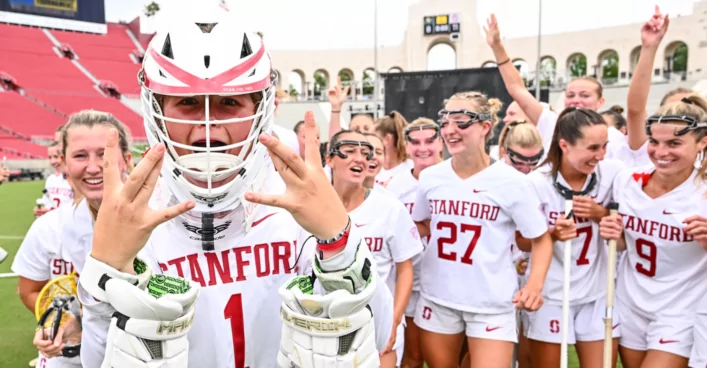
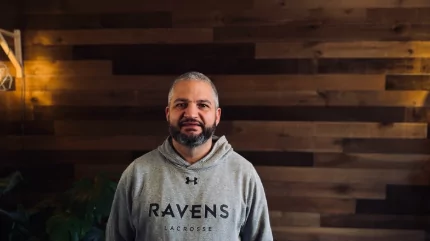
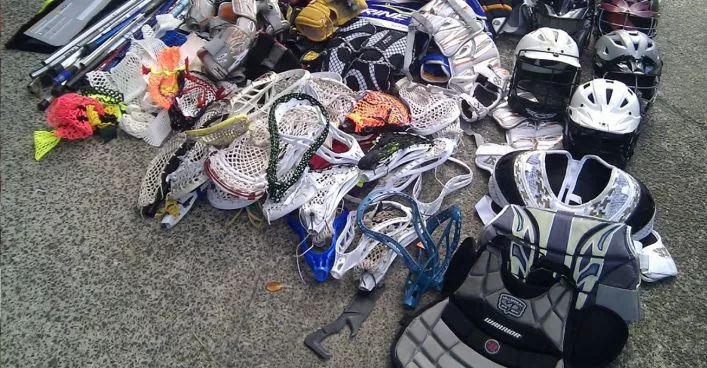

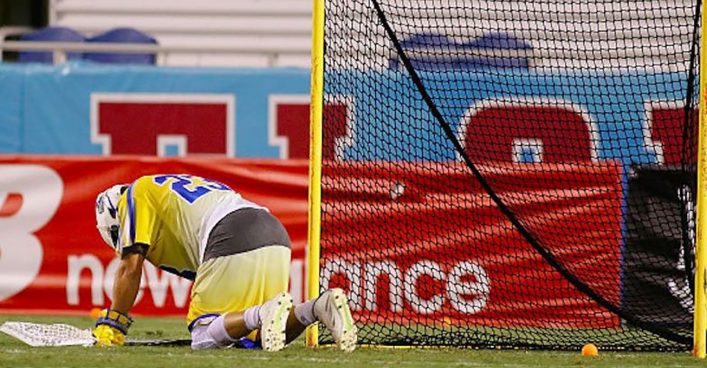
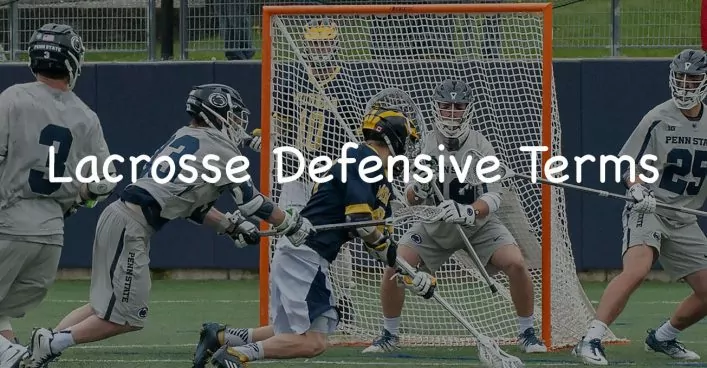
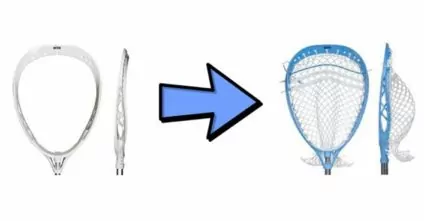
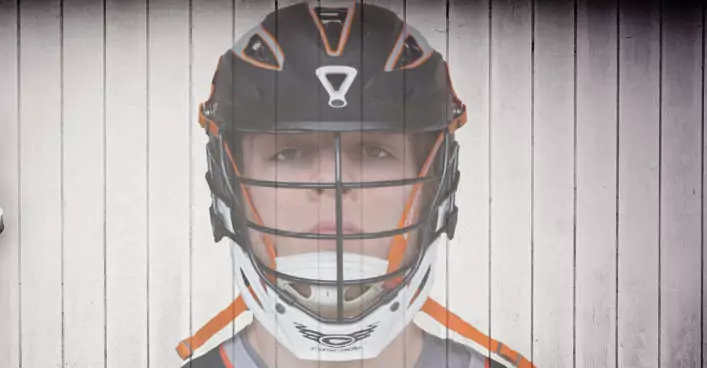






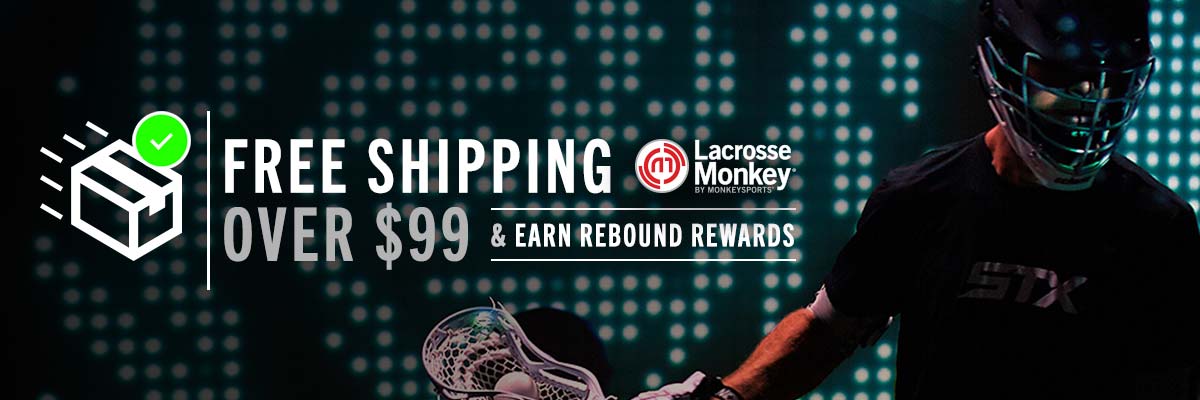

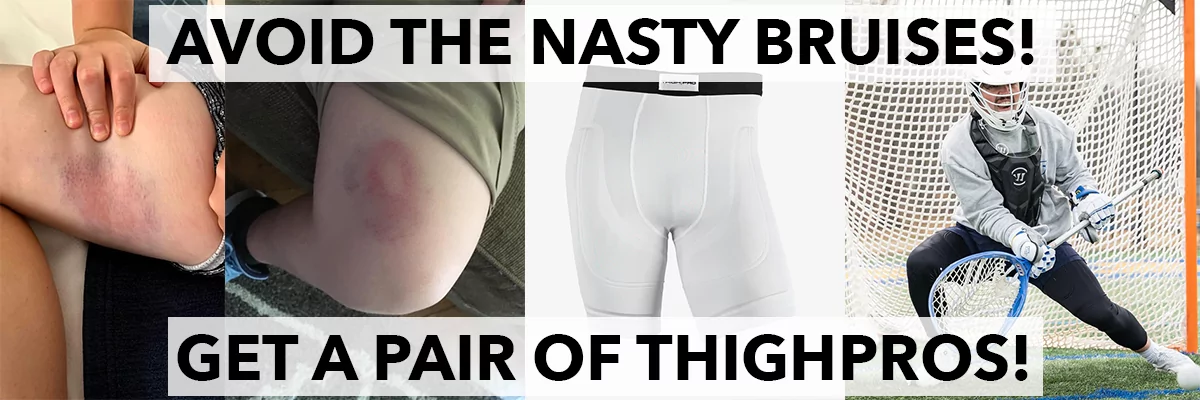

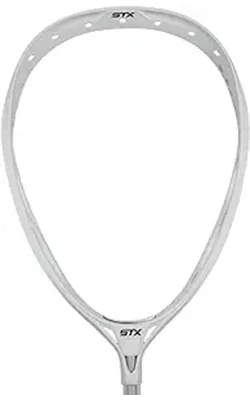

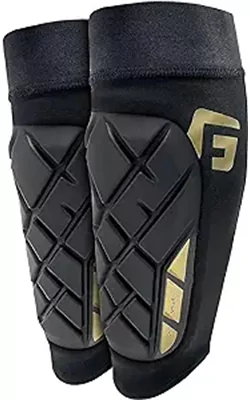
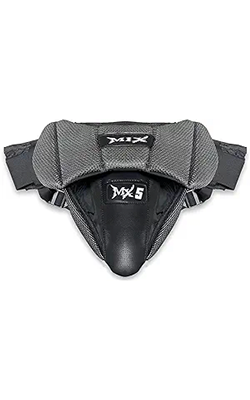

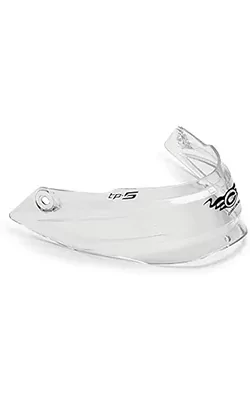
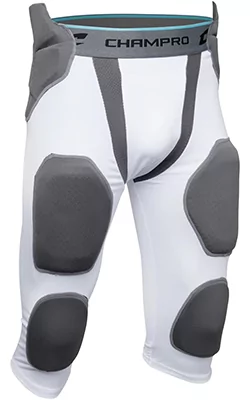
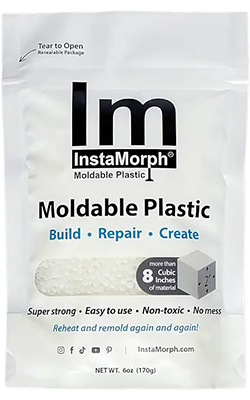
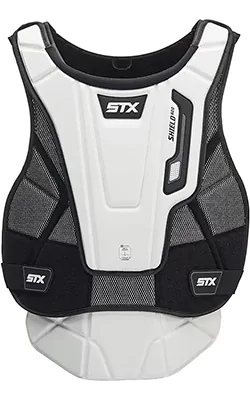
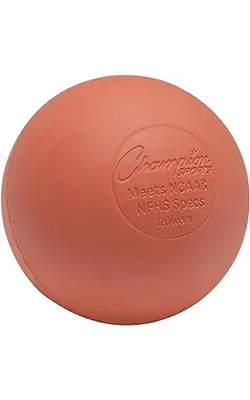
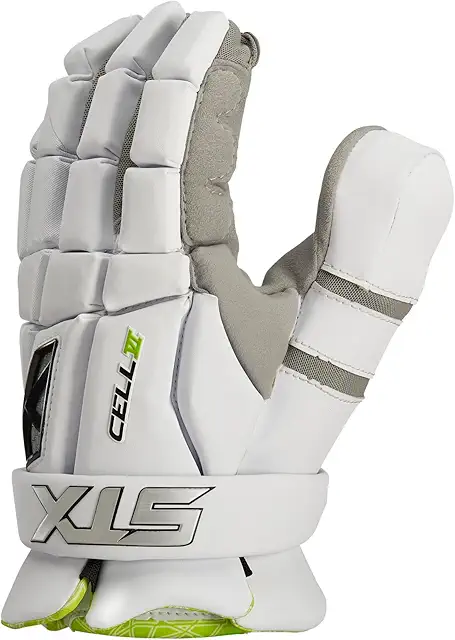
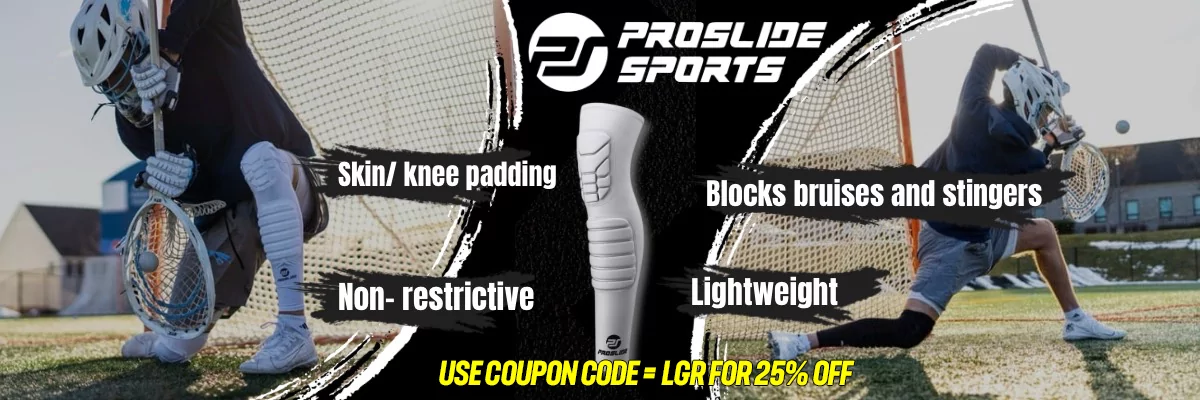
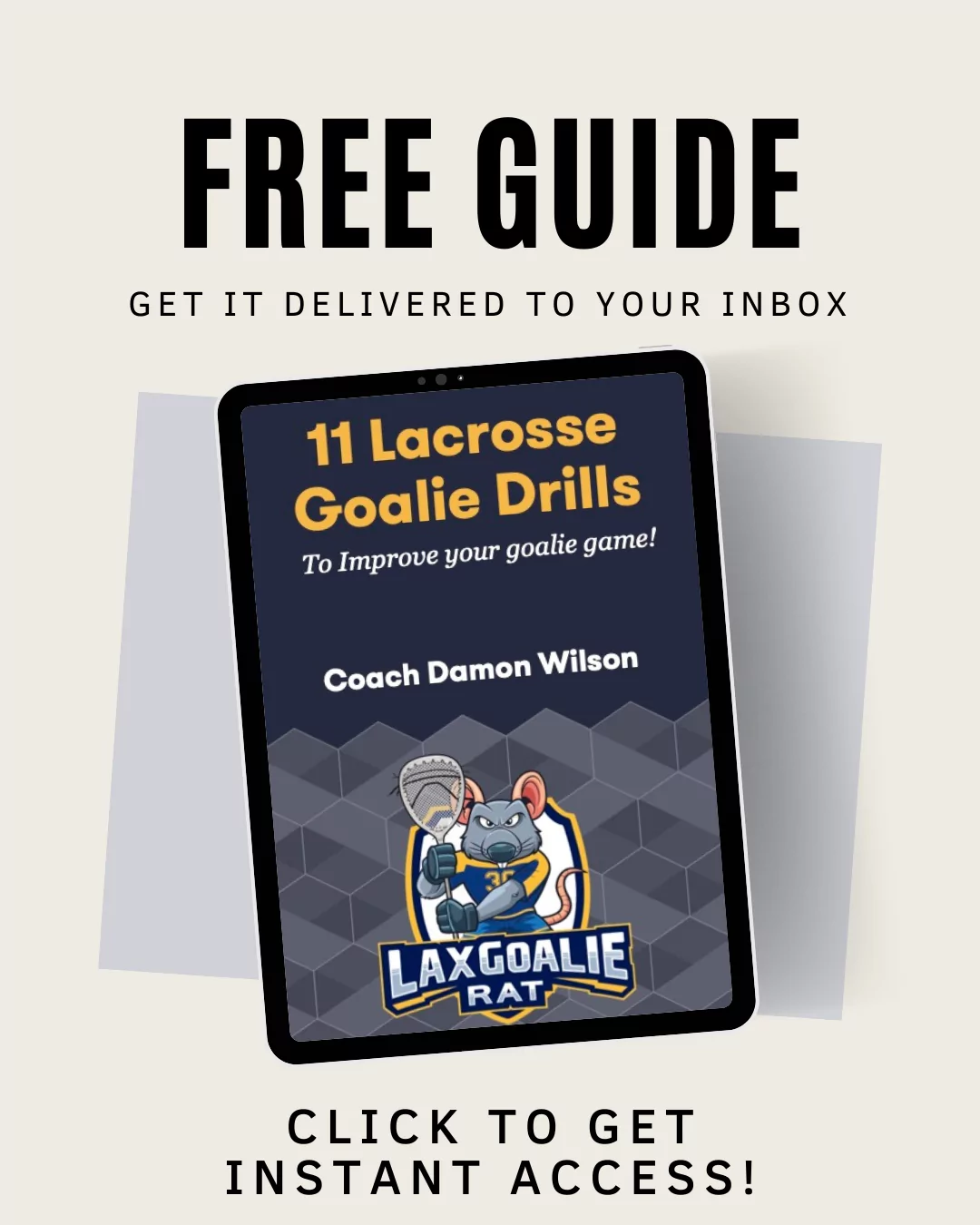
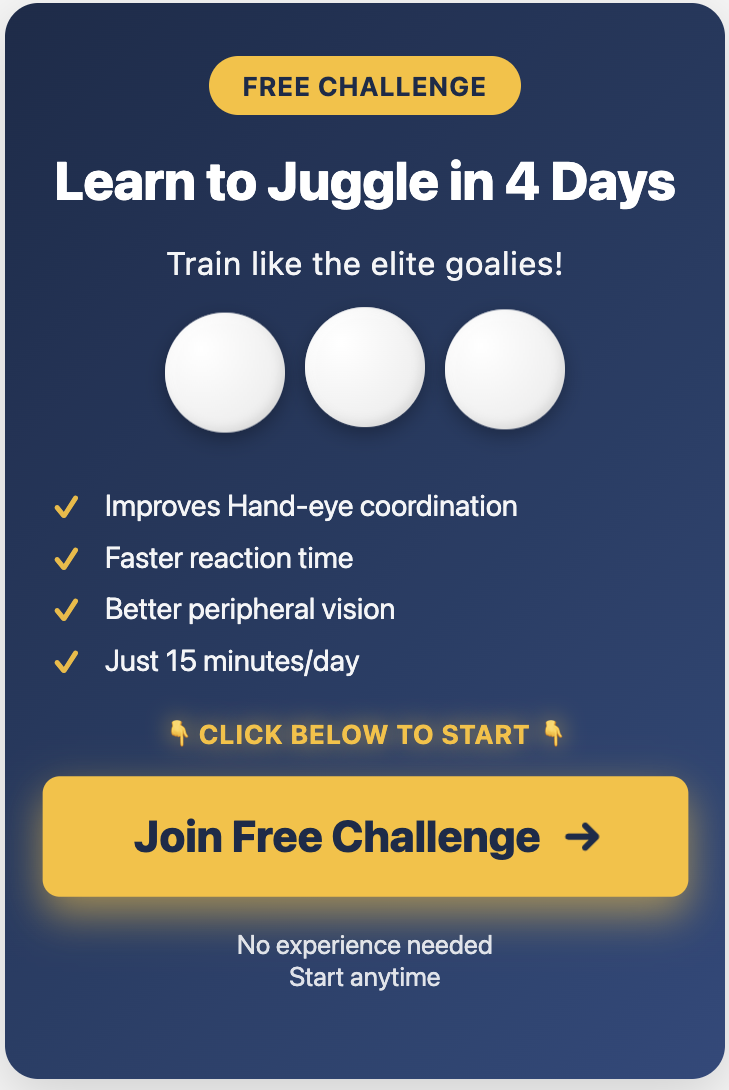

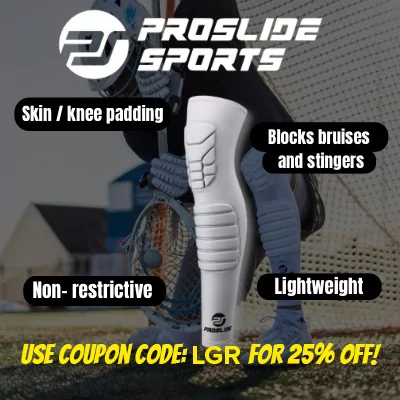

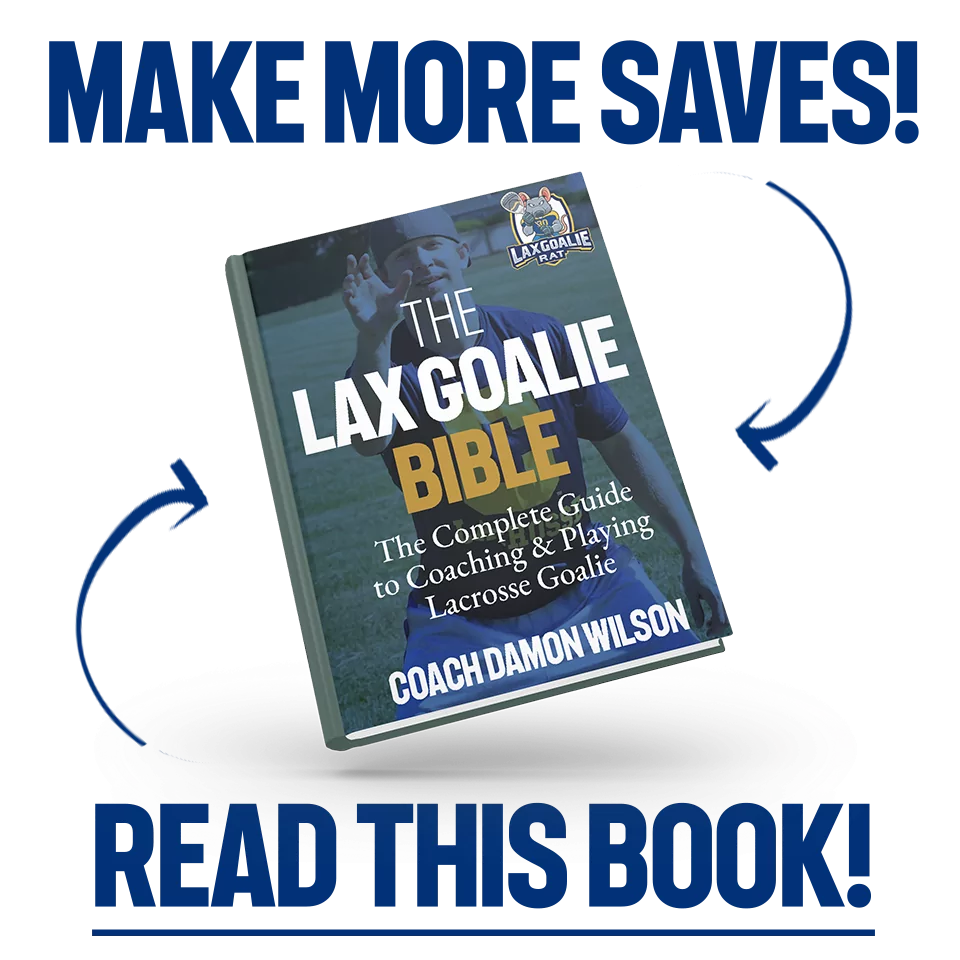
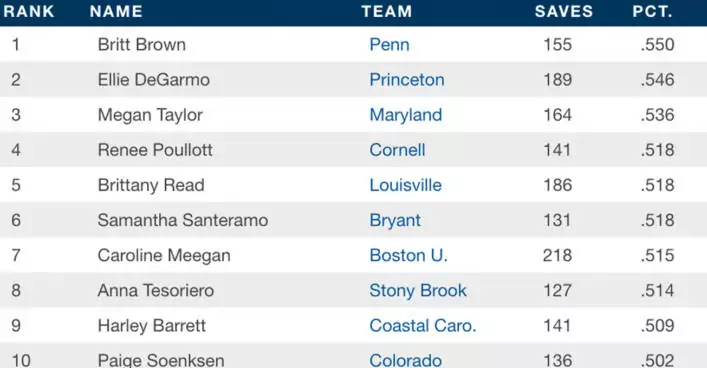
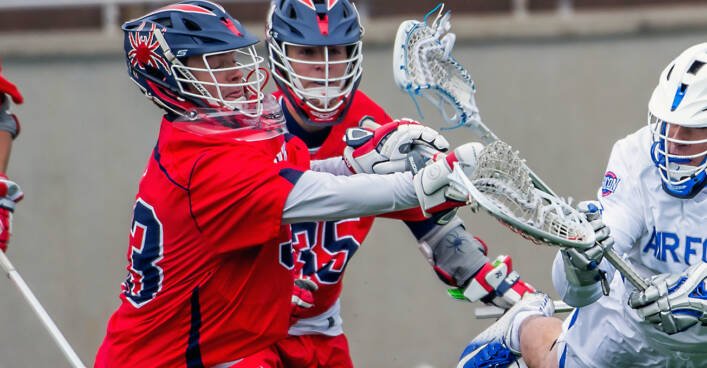
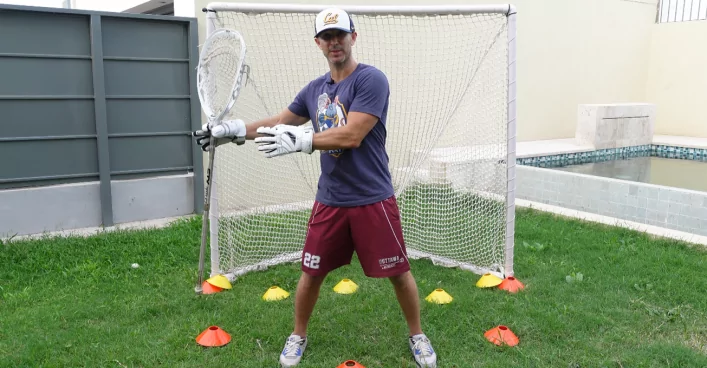
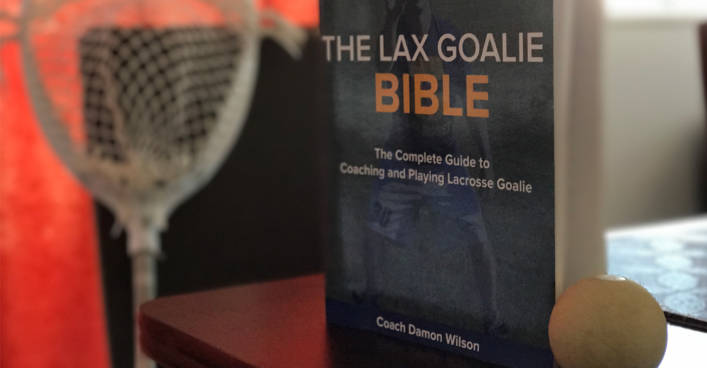
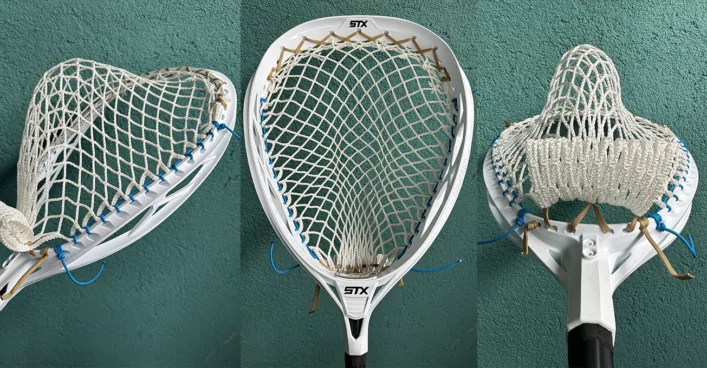
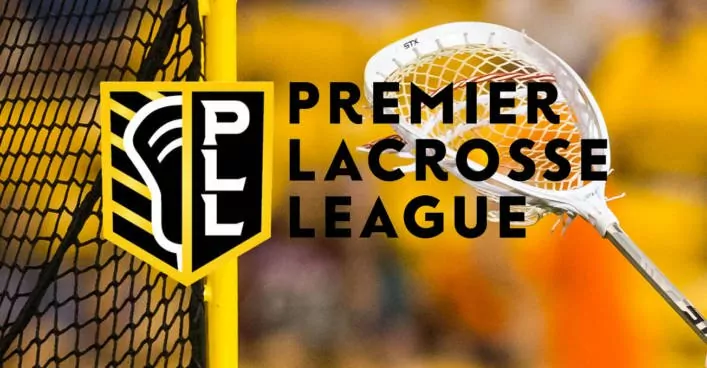




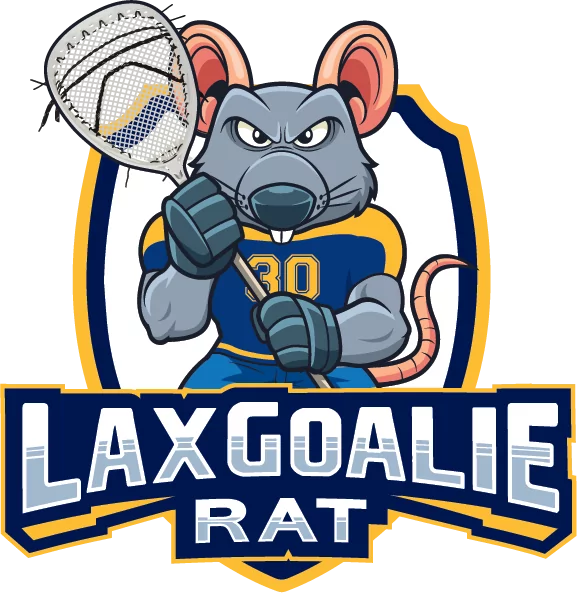




My daughter played 5 years as a Keeper. She got a concussion in her third year. Since then she has been much more cautious, or as much as she could. Last Fall was her senior year in high school. Last tournament of the season and she got rocked in a 7v7 set. It was scary watching her take that shot full force from 3 feet away and watch her fall back into the goal. This time was heavy wiplash but still we took all the same precautions. She has a top of the line helmet but like you said, it’s what the rest of the boy’s team is using. That exterior pad would have been a great addition. She’s in college now and opted out of playing. She won’t admit it but I know it stems from that last headshot. She turned down offers from colleges, but I didn’t argue because I’m not the one out there getting the beat down on the field. I would have loved to see her compete at the collegiate level because she was good enough. Keep doing what you do to improve the sport and protect the Keepers!
Stories like that frustrate me beyond belief. Kids shouldn’t have to give up playing goalie because of dome shots. Thanks for sharing Rich!
Have any manufacturers looked into creating a hockey goalie ‘style’ for the front of the helmet ? That would at least lessen the impact commpared to the current style.
Agreed. Ice hockey style goalie helmets definitely seem like better protection than field lacrosse helmets. I wonder if a lax goalie will ever just start using an ice hockey helmet?
One barrier to that will be approval by the governing body of what ever organization that the team is playing under.
The most likely move would be someone like Dobson or Ward, who play goalie in the NLL with an ice hockey goalie mask, using one outdoors in the PLL.
But when you are talking NCAA or HS lacrosse, those governing bodies likely make it illegal. You would need to get a manufacturer like Warrior that makes ice hockey goalie masks to make a lacrosse goalie mask and get it certified for use in the NCAA or HS games.
While I still do worry a lot about head shots (and I agree wholeheartedly that a properly designed goalie helmet should be a priority for lacrosse manufacturers), some of the more recent research from the NFL has actually made me feel better about my son playing lacrosse. Specifically, it now seems likely that CTE (chronic traumatic encephalopathy) is due more to repetitive impacts than individual big concussive events, and this is good news for lax players. So long as attention is paid to make sure that goalies aren’t playing concussed, long term issues like CTE seem unlikely. Nonetheless, I’d still much rather see good preventative measures taken to protect goalies, as I’m not sure there is such a thing as being too safe where equipment is concerned. At the very least, high schools and the NCAA should allow the use of devices currently on the market – I fail to see how they would provide an improper advantage, and if it prevents even a few head traumas it is surely worth trying.
Interesting. That’s good to know. Good point, no advantage is gained by using the additional protective devices. Unless you consider avoiding a concussion an advantage haha.
Rumor has it that Va Tech is currently reviewing all the current model helmets but Cascade is trying to stop them from releasing it. They know the S is the least protective helmet but don’t want that getting out there. Also have heard that Warrior has a new helmet on the horizon and Vicis has one as well (price will be a big factor there).
I would also add that US Lacrosse noted in their new Box Lacrosse rules that hockey style helmets were not approved. Why are they good enough for 100+ mph hockey pucks but not for lacrosse balls?
I understand why Cascade wouldn’t want that study to come out. Would likely show newer models protect less. The Cascade R/Warrior Regulator failed NOCSAE compliance and they never really said why or what was fixed to gain that compliance back. But just goes to show newer models = less protection. I wonder how much equipment manufacturers get to the lobby the rules.
Coached 5 seasons and we had one goalie with multiple concussions, two of them (IIRC) from shots to the head. Another goalie got another one. Both of them got one each from an accidental dive by an attackman. One of those bang-bang plays where maybe the attackman dove or maybe the defender jammed him at the last second, either way one goalie hit his head on the goal frame and another one got hit head-to-head. And now they’ve brought the dive back! So dumb. Thanks for addressing this important issue. Let’s learn from football and get ahead–require the goofy looking helmets, screw it. They are more effective and can keep our game from going the same way as football. Style isn’t worth your brain and future.
100% agree Will. Thanks for adding that! I also can’t believe the dive is back. I think that’s gonna result in a lot more injuries this year.
My daughter just suffered a concussion last week in practice after taking 3 separate shots to the head. I just found your blog post while searching for ways to prevent goalie concussions.
In addition to the great ideas you mentioned above, I think there are a few other things that would go a long way to protecting goalies from head injuries.
First, the rules need to be changed. Head shots to goalies should be automatic yellow cards and red cards in extreme cases. Today’s rules give the game officials way too much discretion in determining whether a head shot to a goalie rises to the level of a penalty. Girls will learn quickly to stop head shots if they know a penalty is coming.
Second, the officials should immediately stop the game to check on the goalie following any head shot. Head shots can cause your eyes to water and/or knock your helmet out of place. You are greatly increasing the chances of a follow up head injury if you don’t take a moment to let the goalie get reset/recover. I have seen it happen multiple times with my daughter. Refs routinely stop the game when field players get hit in the head. They give them a moment to recover, or send them out of the game if there is an injury. This never happens with goalies.
Finally, coaches need to create team rules to protect their goalies during practice. A college coach at a camp once told us that she makes any shooter that hits the goalies head or body in practice run a mile. The players learn quickly to focus on where they are shooting instead of just throwing as hard as they can at goal.
Hi Tom! That really sucks! Sorry to hear about your daughter. I suffered my share of concussions back in the day and seems like many goalie go.
On your points –
I tend to think shooters don’t purposely shoot at goalies heads so I’m not sure what penalizing them would do to prevent it. If they had that much control why not just shoot it in the corner of the goal.
2nd point is great – any goalie headshot should be quick concussion protocol.
Kind of related to the first point in that I think most head shots are accidental. In practice at least goalies can wear the lexi shield or extra head padding to help reduce concussions.
Thanks for that comment!
Both of my daughters are goalies and one of them probably got a mild concussion, but the doctors said it wasn’t one. I’m a hockey goalie and for the life of me don’t understand why the lax helmets are made of plastic. The hockey goalie helmets that are made of plastic are referred to as “widow makers” in the hockey goalie world. An easy solution would be to make lax goalie helmets out of Kevlar fiberglass. I’m going to try and reach out some hockey goalie helmet manufacturers and see if there’s anything they can do about making a lacrosse goalie helmet. You’d think with all the concussion awareness nowadays, they would do something to protect the lax goalies more.
Totally I would think they’d make a change. Seems like an lacrosse company could come out with the 1st lax goalie helmet and earn tons of buzz in the lax community.
I know you wont believe this, but there is a concussion proof helmet on its way. This helmet requires no padding, but will stop a concussion dead in its tracks. This helmet is super light, super comfortable and easy to put on and take off.
Really hope you’re right! Concussion proof helmet is what we need. Or ability to just use ice hockey style helmets
No there isn’t you liar, because helmets don’t stop your head from moving, which causes your brain to move inside the skull. Unless your imaginary helmet goes between the skull and the brain?
“Studies have theorized that mouthguards can reduce concussion risk because they help absorb shock, stabilize the head and neck, and limit movement caused by direct hits to the head and jaw.”
WRONG. Studies do not support this myth and there is absolutely zero evidence for it.
This is a great conversation here. Are you aware of any inserts that could be placed inside the helmet (I’m assuming they could then be worn during a game).
Thanks Ryna! The company Unequal, who also make a nice goalie chest pad, does make helmet inserts that serve this function.